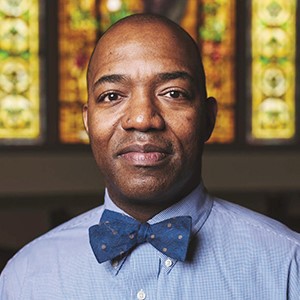

Question and Answer
How do you minister to a family member who isn’t a believer without causing division? Or is division inevitable? If so, is it worth talking about Christ at the risk of your relationship being marred or even destroyed?
Why can't an ordinary Christian do what the Apostles did in the book of Acts?
Is Caleb, the son of Jephunneh, a Gentile from the Kenizzites?
How do you minister to a family member who isn’t a believer without causing division? Or is division inevitable? If so, is it worth talking about Christ at the risk of your relationship being marred or even destroyed?
Families are often the hardest context in which to live out our faith. It is wise for believers to live among our family members with humility, submission, forgiveness, and love to all and with honor to our parents, praying daily for our family members. In this way, we might minimize relational conflicts.
When you tell your family members that Christ is the only way to God and that they will perish apart from Him, some may become angry. If you do receive a hostile reply, remain as loving as possible, admit your own faults, and explain that you do not have answers to every question about Christ.
Once you have an opportunity to share the gospel, leave the door open for family members to return to you by letting them know you are praying for their good every day and offering to talk more about Christ only if and when they want to. In the end, God must be the one who saves them, and we trust Him to do so.
Why can't an ordinary Christian do what the Apostles did in the book of Acts?
Some unusual things happen in the book of Acts when the Lord was establishing the church. Prior to the ascension of Christ and the Day of Pentecost, the church did not exist. When Christ poured out the Spirit of God from heaven upon the disciples, He created a new entity—the Church—whose expansion depends upon the message of eyewitnesses to the resurrection (Acts 1:8).
In Acts, God verified the gospel message of the Apostles’ preaching through signs and wonders (see Acts 2:22, 2:43; 5:12; 14:3). Some of the more unusual miracles included healing a lame man by the name of Jesus (Acts 3:6–8), people being struck down for lying (5:1–10), healing by a passing shadow or a handkerchief of an apostle (5:15, 19:12), angels or earthquakes opening prison doors (5:19; 12:7; 16:26), the Spirit transporting a person from one city to the next (8:39–40), Jesus blinding a man in order to save him (9:3–8), an angel from the Lord striking down a king (12:23), the Spirit speaking to an entire group (13:1–5), and a man remaining alive after being bitten by a poisonous snake (28:3–6).
In order to be an apostle, one had to meet several criteria. First, he had to be appointed directly by the Lord (Acts 9:15; 22:14–15; 26:16–18; 1 Cor. 15:8–9; Gal. 1:11–12, 15–16). Second, he had to have seen the resurrected Christ and be an eyewitness to the resurrection (Acts 1:22; 22:14; 1 Cor. 9:1). Third, he had to have the accompanying signs gifts, which refers to signs that bear witness to Jesus, that characterized an apostle (2 Cor. 12:12). These men, through being eyewitnesses to the resurrection of Christ in their preaching of the gospel, established the foundation for the church (Eph. 2:20).
Since the church was established, we rest our faith on the Apostles’ eyewitness testimony about the truth of the resurrection of Jesus as the divine Son of God, the Messiah, as recorded in the Scriptures. There is one thing we can share with the Apostles: boldness in our proclamation of Christ to all people, as Jesus commanded in the Great Commission (Matt. 28:19–20). If we want to do as the Apostles did in Acts, we should tell people about salvation in Christ.
Is Caleb, the son of Jephunneh, a Gentile from the Kenizzites?
The Old Testament mentions Caleb several times. He is first named along with Joshua as one of the two spies who brought back a positive report on the Promised Land during Israel’s failure at Kadesh-Barnea
(Numbers 13–14). This account often refers to him as “Caleb son of Jephunneh” (Num. 13:6; 14:6, 30, 38). Later accounts refer to him by his extended genealogy, “Caleb son of Jephunneh the Kenizzite” (Num. 32:12; Josh. 14:6, 14). Three times the Scriptures mention him in connection with the early judge “Othniel son of Kenaz, Caleb’s younger brother” (Judges 1:13; 3:9; see also Joshua 15:17).
In the book of Genesis, we find that Kenaz was a grandson of Esau, and therefore was not directly part of one of the tribes of Jacob (see Gen. 36:11, 15).The descendants of Kenaz would not have been the offspring of Jacob or part of the Israelite community by birth.
Scripture also says that Caleb and Othniel were part of the tribe of Judah (Num. 13:6), and they received their inheritance possession (Josh. 15:13). Thus we can reasonably conclude that at some point either Caleb or his father would have been proselytes to Israel—Gentiles who placed faith in the God of Jacob and submitted themselves to His commandments. The Lord was pleased to use both Caleb and Othniel to provide victorious leadership for the people of Israel.




